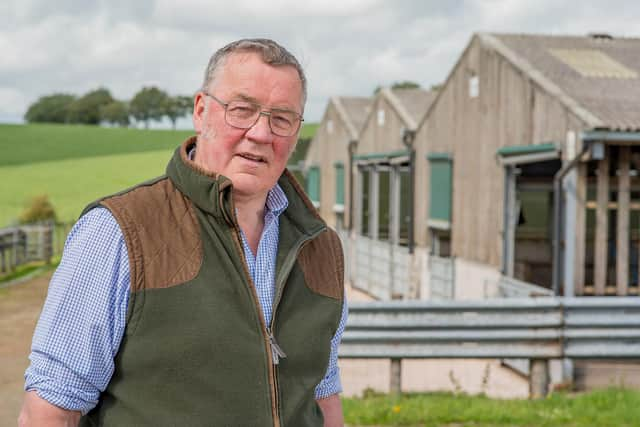McCornick warns over government lack of support


Giving his final presidential address at yesterday’s on-line annual general meeting, NFU Scotland’s Andrew McCornick urged the Scottish government to exercise caution on the ‘worrying trend’ it had shown in how it viewed the industry.
“No one can deny that our upland and marginal land needs support,” said McCornick, “but this should not be to the detriment and disregard of those farmers who look after our Region One land or on the better in-bye land on our upland farms and crofts.”
Advertisement
Hide AdAdvertisement
Hide AdStating that this better land was a ‘massive driver’ for the rural and national economy, he said: “A ‘robbing Peter to pay Paul’ policy, which the government has shown with its distribution of convergence monies and the bias in the recent capital grants scheme,FA has failed to recognise the importance of Region One land in the fortunes of the whole agricultural sector in Scotland.”
Stating that in the post-Brexit world farmers on better land would face stiff competition from EU farmers – who, he said, would have free access to UK markets along with considerable support through the Common Agricultural Policy – McCornick warned that the Scottish government needed to be fully aware of the consequences of putting these areas at a huge competitive disadvantage.
“To have our Region One land starved of support and yet having to meet the same challenges and costs as our strongest, nearest and fully supported competitors would be ruinous for arable, dairy and similar high input, low margin businesses that are located in our Region One land in Scotland.”
But he also advised members to keep looking forward, and told the industry that it would need to change to meet the needs of the future – and this meant taking up the challenge of being ‘part of the solution’ on climate change.
“To access future funding you will need to show how your croft or your farm is contributing to lowering the Global Warming rate.”
With the industry on the brink of a ‘transformational decade’ he said future policy would be shaped by climate change, while funding sources would be challenged by the Covid-19 impact on the economy.
And he warned that there was no longer the security of the ring-fenced pot for agriculture which had been provided when in the EU - and advised farmers to make the most of the funding guarantee through to 2024 to future-proof their businesses.
Later in the conference English NFU leader, Minette Batters, outlined the ‘radical’ policy development south of the border where support was to be moved from food production to delivering environmental services - and revealed:
Advertisement
Hide AdAdvertisement
Hide Ad“In terms of the delivery of a sustainable farming industry Scotland is leading the way – and I would far rather be discussing the proposals being put forward by Fergus Ewing than the ones proposed by George Eustice.”